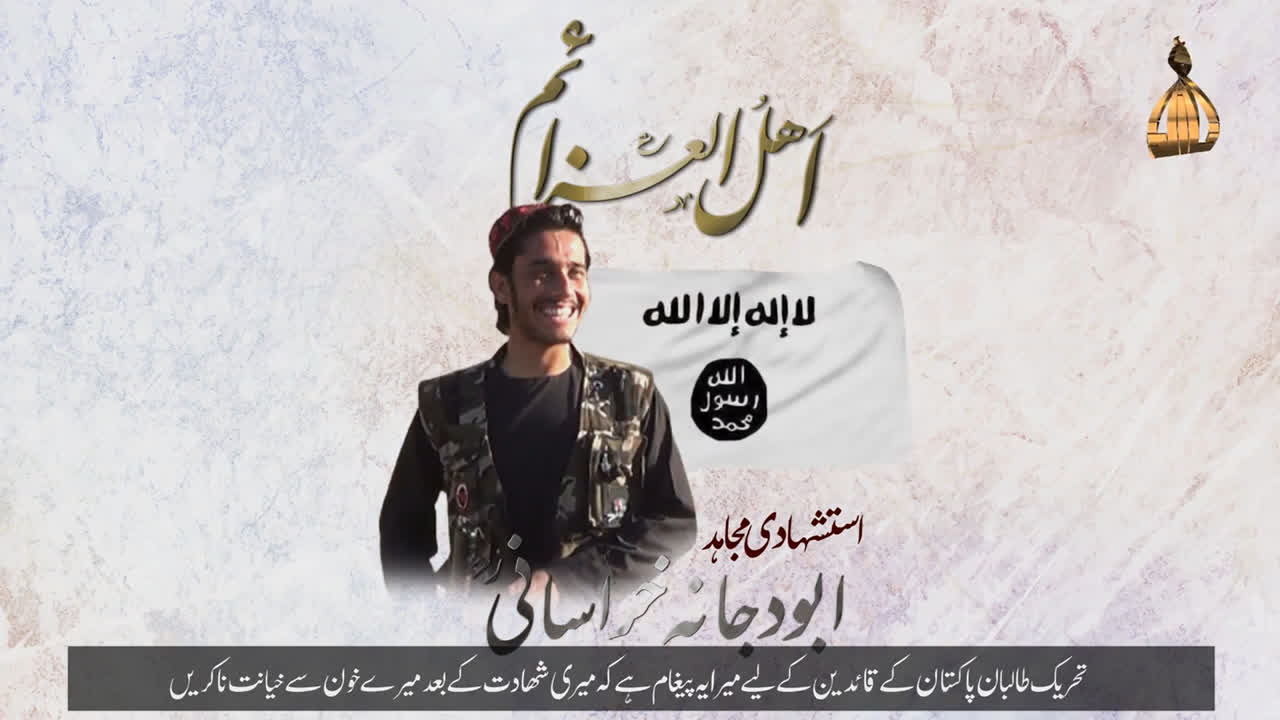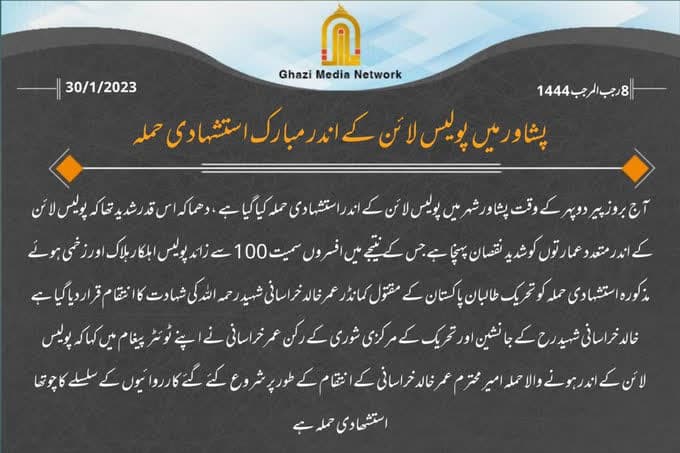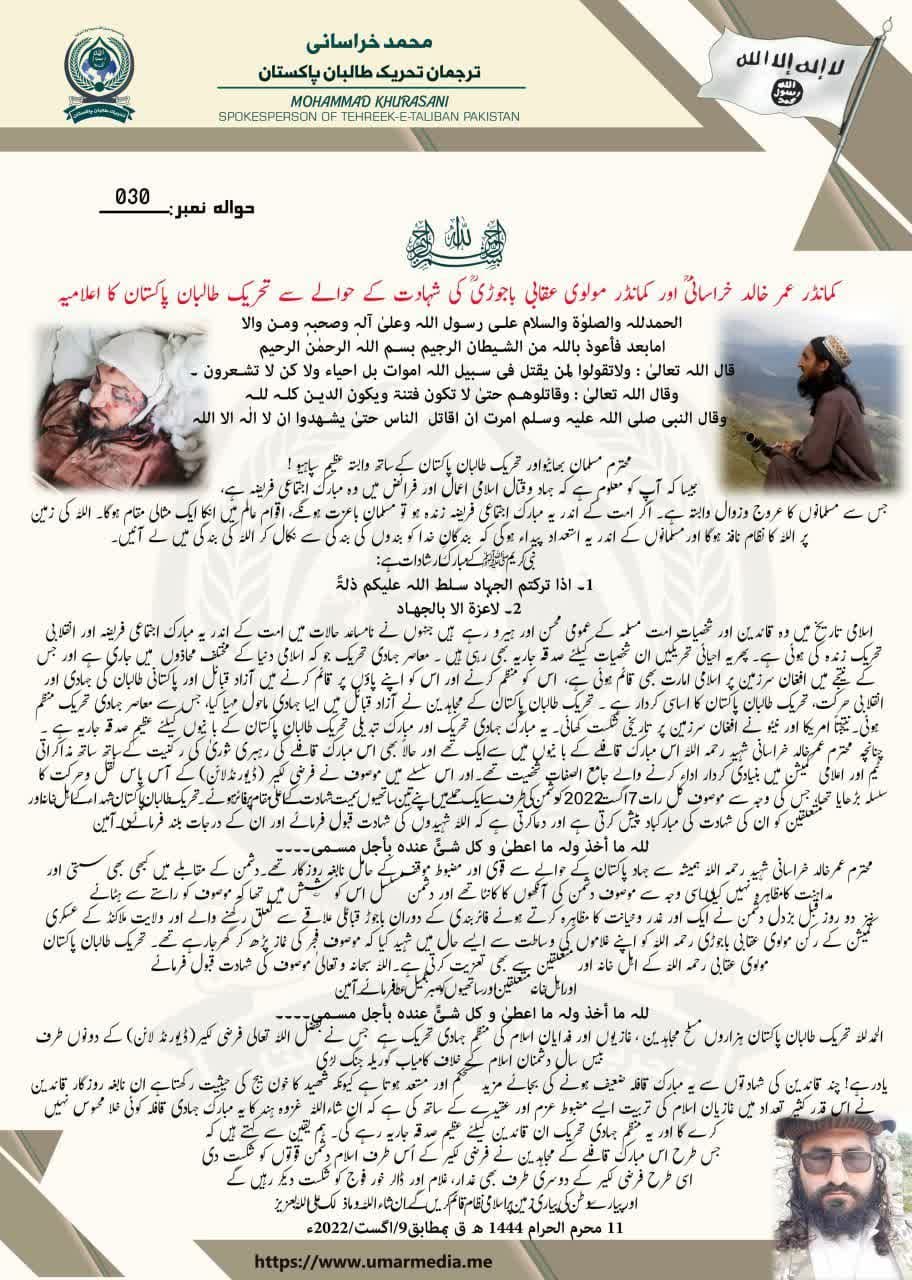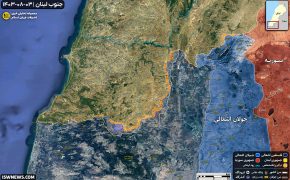Tehrik-i-Taliban Pakistan And The Jamaat-ul-Ahrar Group

The Tehrik-i-Taliban Pakistan (TTP) is a group made up of multiple tribal, geographical, and ideological offshoots, who has a complicated relationship between its central leadership and different factions.
The complexity is not only dependent on the atmosphere in which the Tehrik-i-Taliban Pakistan (TTP) exists, but also on how the group was formed as well as its goals, its relationship with Afghanistan’s Taliban on the one hand and the Pakistani government on the other; moreover, the formation of the Tehrik-i-Taliban Pakistan in 2007 as a result of a gathering of 13 large and small groups, which adds to the complexity of the group’s relationships.
Those groups that make up the Pakistani Taliban today include Lashkar-e-Islam (LeI), Baloch Mazari Group, Jundallah Group, Jamaat ul-Ahrar (JuA), Ghazi Abdul Rashid Shahid Brigade (GARSB), Tehrik-e Taliban Punjab (TT Punjab), Musa Shaheed Karwan group, Amjad Farooqi Group and Hakimullah Mehsud Group.
Among these groups, Jamaat-ul-Ahrar (JuA) has always had a complex and fluid relationship with the central command of the Tehrik-i-Taliban Pakistan as an effective faction within it.
It can be said that following the killing of first leader of the Tehrik-i-Taliban Pakistan (TTP) Baitullah Mehsud in 2009 and also the killing of Hakimullah Mehsud, who was the second leader of the Pakistani Taliban, in 2013, as well as the Mehsud tribe’s failure in keeping on the leadership of the TTP and the next leadership under Fazlullah Khorasani, who did not come from the Mehsud tribe but came from Swat region, doubled the complexity of internal relations of the Tehrik-i-Taliban Pakistan.
Read more: Identification Of Formation And History Of Activities Of Tehrik-E-Taliban Pakistan
One of the consequences of the withdrawal of leadership from the Mehsud region and tribe was the separation of different groups from the Tehrik-i-Taliban Pakistan. Among the main issues was Omar Khalid Khorasani, a leading commander of the Mohmand Agency in the Tehrik-i-Taliban Pakistan and leader of Jamaat ul-Ahrar, who did not tolerate Fazlullah Khorasani’s leadership and separated from the Tehrik-i-Taliban Pakistan in 2014.
Some sources also claim that Fazlullah Khorasani, then leader of the Tehrik-i-Taliban Pakistan, expelled him from the movement due to Omar Khalid Khorasani’s relations with groups, which are more extremist than the TTP.
Prior to the event, Omar Khalid Khorasani, who had more heart for Salafi jihadist groups than other movements, tried to mediate between the ISIS and Jabhat al-Nusra terrorist groups in Syria through Jamaat ul-Ahrar’s exclusive media outlet dubbed “Revival of Caliphate”. In fact, it seems that Omar Khalid Khorasani had warm relations with leaders of the Orakzai Taliban especially Hafiz Saeed Khan [also known as Mullah Saeed Orakzai] who joined the ISIS and became Emir (leader) of ISIS in Khorasan. However, as a result of the killing of Fazlullah Khorasani in 2018, the leadership of Tehrik-i-Taliban Pakistan once again went to Taliban of the Mehsud region and specifically to Mufti Noor Wali Mehsud nicknamed Abu Mansoor Asim.
Following the leadership of the Mehsud tribe over the Tehrik-i-Taliban Pakistan once more, Mufti Noor Wali Mehsud tried to bring the separated groups back to the movement, and among them, the paramilitaries of the Hakimullah Mehsud Group were the first group to return to the Tehrik-i-Taliban Pakistan.
The Amjad Farooqi Group also returned to the Tehrik-i-Taliban Pakistan, as well as the Lashkar-e-Jhangvi’s (LeJ) Usman Saifullah group led by Mullah Khosh Mohammed Sindi, pledged allegiance to Noor Wali Mehsud. Later in 2020, Jamaat ul-Ahrar, led by Omar Khalid Khorasani, along with Hizb al-Ahrar led by Omar Khorasani, pledged allegiance to the Tehrik-i-Taliban Pakistan.
Omar Khalid Khorasani was eventually killed on August 7, 2022 in Paktika province of Afghanistan by the United States’ drones. But his group still continues its existence and apparently under the leadership of Omar Khorasani, Omar Khalid Khorasani’s personal guard who had previously split from the group and formed Hizb al-Ahrar, simultaneously and in on one day rejoined the Tehrik-i-Taliban Pakistan.
Following the killing of Omar Khalid Khorasani, the complicated relationship of Jamaat ul-Ahrar with Tehrik-i-Taliban Pakistan did not come to an end, but it even became more complicated.
The issue became more obvious after a series of operations by Jamaat ul-Ahrar under the name of taking revenge for Omar Khalid Khorasani’s blood, at the top of the revenge incidents was Police Lines Mosque operation in Peshawar, Pakistan’s Khyber Pakhtunkhwa province, on January 30, 2023.
As a result of the suicide operation in Peshawar, a bomb exploded during prayer and at least 100 people were killed and more than 170 were injured. The Police Lines Mosque was located in the headquarters of the Pakistani security forces and residence of police officers; thus, most of worshipers and casualties of suicide attack were security forces and police staff.
Hours after the terrorist attack, Omar Khalid Khorasani’s branch took responsibility for the bomb blast through issuing a statement and they considered it in revenge for the assassination of Omar Khalid Khorasani. But Mohammad Khorasani, spokesman for the Tehrik-i-Taliban Pakistan, underlined that operations against mosques and public places are wrong.



Jamaat ul-Ahrar recently released a video from its new media outlet dubbed Ghazi Media that dealt with several suicide operations and considered all of them in revenge for the assassination of Omar Khalid Khorasani. Interestingly, the Peshawar Police Line Mosque operation was not among the highlighted operations in this video. Remarkably, in the final scenes of the film, one of the suicide elements named Abu Mallal al-Hummam Khalil Muhammad al-Balawi also known as Abu Dujana al-Khorasani, who spoke before his operation in Ghazi Media outlet, sent a message to the leaders of the Tehrik-i-Taliban Pakistan not to betray the blood of martyrs.
In conclusion, it seems that complicated relationship between the Tehrik-i-Taliban Pakistan and Jamaat al-Ahrar would not end up in convergence even after killing of Omar Khalid Khorasani due to challenges facing the Tehrik-i-Taliban Pakistan in relation to Pakistani government in new circumstances on one hand and more extremist approach of Jamaat ul-Ahrar on other hand.

Author: Yasser Qazvini Haeri, ISIS and terrorism expert




Comment